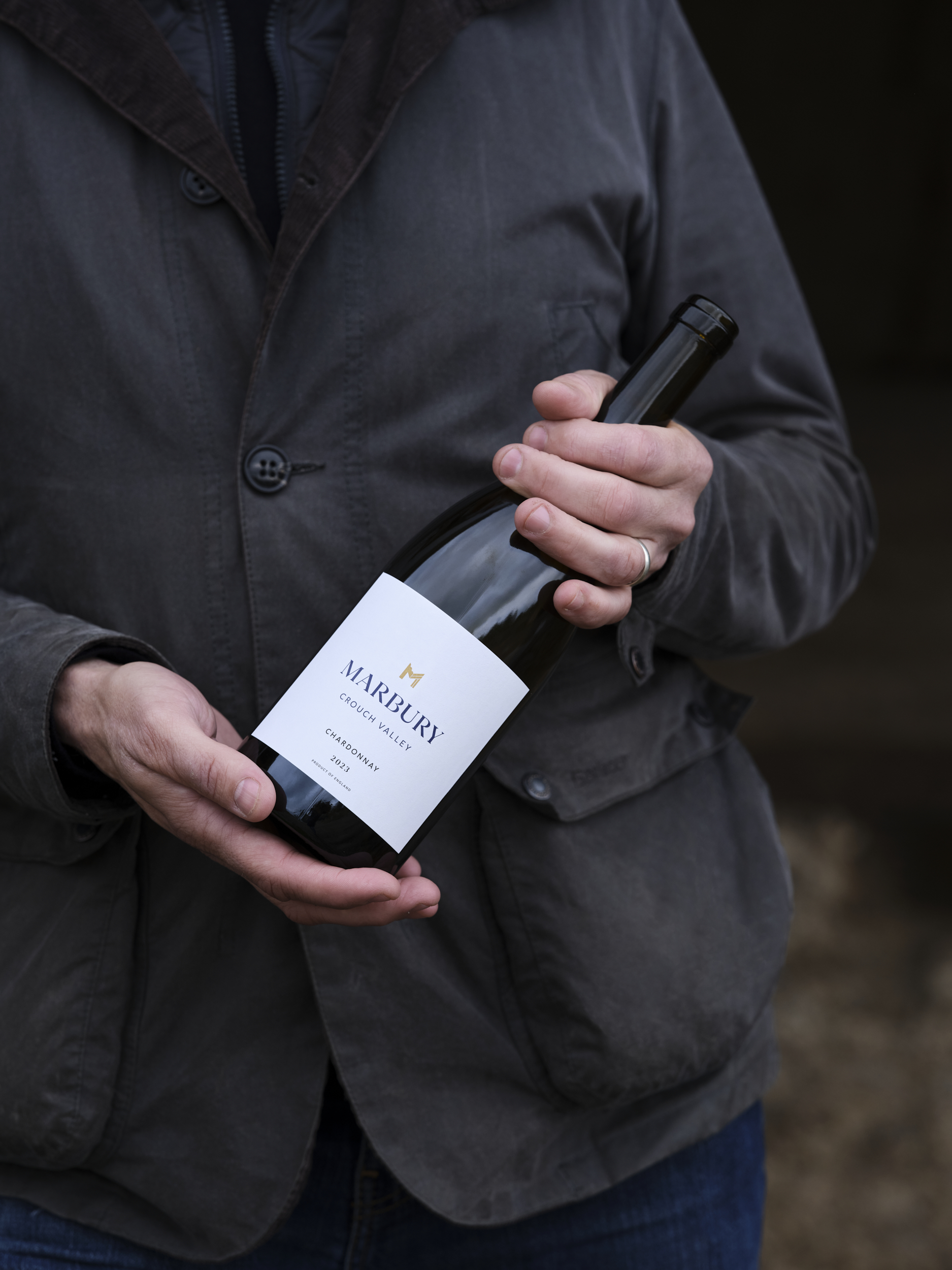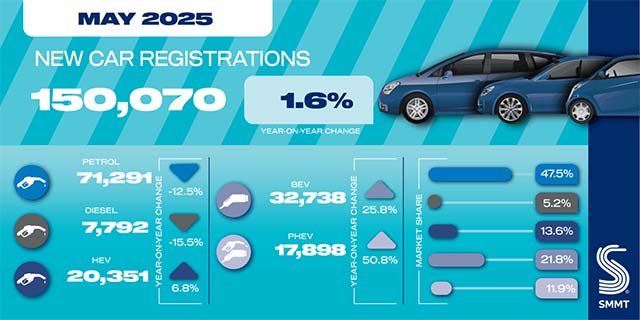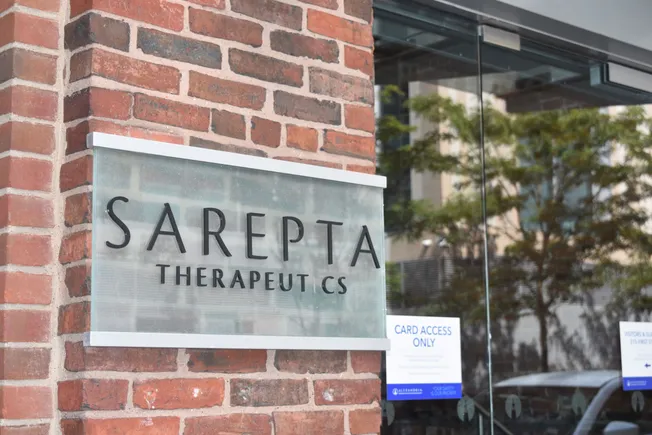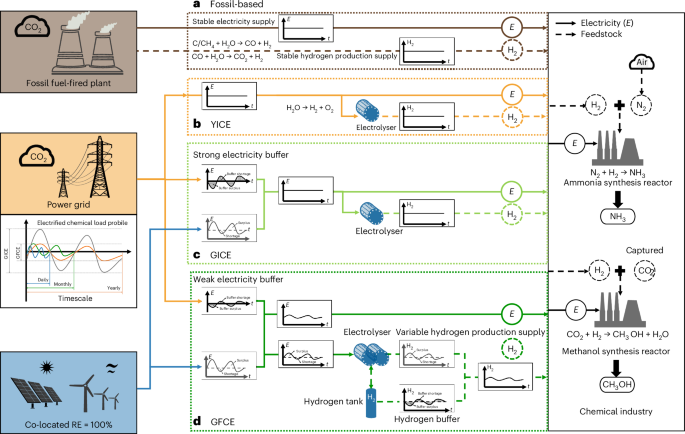How England is emerging as a source of fine white wine
Had you asked me a decade ago whether England was capable of making fine, age-worthy, barrel-influenced white wine, my response would probably have been to shake my head – but now, I’ll answer with a nod. The post How England is emerging as a source of fine white wine appeared first on The Drinks Business.

Had you asked me a decade ago whether England was capable of making fine, age-worthy, barrel-influenced white wine, my response would probably have been to shake my head – but now, I’ll answer with a nod. My view has been slowly changing with each new sampling, starting a few years ago with a sip of 'Kit's Coty' Chardonnay from Chapel Down in Kent, then Gusbourne's Guinevere from the same grape and county, and, most recently, the Chardonnays from Danebury Ridge in Essex. But after a tasting this week in London, I’m even more sure that the UK can produce white wine to rival fine Chablis, by which I mean premier to grand cru standard (although not at the same level, nor style, as the great Chardonnays from Burgundy’s Cote d’Or, or California’s top sites, be they in Sonoma, Napa/Carneros, Santa Barbara.) Such a conclusion was drawn after the first taste of a new label, called Marbury – a barrel-aged Chardonnay from 2023. My expectations were high, firstly because the winemaker is Charlie Holland, who crafted some of England’s best still wines while at Gusbourne, which he joined in 2013. Taking those expectations higher, however, was the knowledge that he was working with grapes from the Crouch Valley – widely held to be the best site for sourcing Chardonnay (and Pinot Noir) in the UK, and the location of the aforementioned Danebury Ridge. And giving me further confidence was the fact that this new label was backed by Jackson Family Wines, who specialise in barrel-fermented Chardonnay, built on their success with Kendall Jackson Vintner's Reserve – the best-selling Chardonnay in the US for over 30 years. As reported by the drinks business in 2023, after a decade at Gusbourne, Holland joined the Jacksons to help them with their first project in the UK, which, despite the mounting hype surrounding English sparking, would be focused on still wines – initially that is. This week saw the unveiling of the US-based group’s first stab at fine English white wine, and it’s an exciting example of what’s possible when you combine high-quality grape sourcing with talented winemaking, backed by funds from a business with a long-term aim to create fine Chardonnays from a range of sites around the world. Indeed, the wine has plenty of what are becoming hallmarks of English Chardonnay: crisp orchard fruit flavours, moderate alcohols, and fresh acidity. Allied to that is a note of caramel and toast from the fine French barriques used to age the wine – although just a small proportion (15%) are new – as well as a touch of mid-palate weight, both from some ripe, peachy notes due to the relatively high ripeness of the fruit used, and a creaminess due to lees stirring while the wine ages in barrel. On top of such traits, there’s a subtle saltiness to the finish, adding to its mouth-watering nature. Speaking to db on Tuesday this week about the wine, Holland assured me that his brief was to craft the best English still wine possible, and not to mimic a Chardonnay from California, or anywhere else. “While I was worried that I might be asked to make a Californian style of Chardonnay, the opposite was true, they [the Jackson family] wanted an English wine,” he said. Continuing he commented, “So I have played to our strengths, and what we have in England is lovely freshness, and a zippiness, which makes English wine moreish to drink – and we should be embracing that.” Having said that, due to the comparatively dry and warm conditions of the Crouch Valley in Essex, Holland admitted that he could make a bigger and more alcoholic style of Chardonnay. “It is possible in the Crouch Valley to make Chardonnay at 14% abv, even almost 15%, and some are doing that because they can, but there is enough of that style of wine from elsewhere in the world, so we are focusing on what makes English wine special, and our Chardonnay is 12.5%,” he said. As for the temptation to go for greater barrel-sourced richness, which could be achieved by increasing the amount of new oak used in the fermentation and ageing of Marbury Chardonnay, he said that this was not desirable. “The key is freshness and crisp acidity with some generosity from oak – so you taste it at the back, while showing off the crystalline fruit underneath,” he said, before admitting, “We did try with a bit more oak – but I felt the wine lost some of its typicity.” Providing texture to the Marbury Chardonnay is a full malo-lactic fermentation and battonage in barrel, where the wine matures for 10 months. When asked if he had a benchmark English Chardonnay in mind when crafting this inaugural expression for Jackson Family Wines, he said not. “I know well the wines of Danebury and of course Gusbourne, as well as some of the new ones, such as Whitewolfe, but I had no benchmark in England for Marbury; my benchmark is Chardonnay from around the world,” he said. Stylistically, he commented, “You can find different extremes, from Chardonnays bottled direct from tank fermentations to richer ones with lots of new oak, and I would say we are in-between, but I don’t think it’s like any other Chardonnay I’ve tasted [from England].” As for the price, which has been set just below £40, with a RRP of £38, Holland said it was arrived at by looking at the competition, as well as the costs of production. “To decide on the price we did a lot of benchmarking against the competitive set – and while it [Marbury] isn’t cheap, we are confident that it delivers good value at that level,” he said. “And it’s expensive to grow grapes and make wine in England – especially if your yields are only 1 tonne per acre,” he added. The price is also reflective of where the Jackson family want to see the wine sold, which is “high-end retail and some fine dining” according to Holland, who then stated, “We only have 150 cases of the first vintage, so we are placing it in lighthouse accounts.” The sourcing for Marbury is not yet from Jackson’s own property, but the best English Chardonnay Holland could lay his hands on, he assured db. For that he worked with Crouch Valley viticultural specialist Duncan McNeill, who runs McNeill Vineyard Management (MVM), who Holland said “has been able to coax ripeness from grapes even in difficult years”. McNeill sourced Chardonnays for Marbury’s 2023 vintage from a range of the best Crouch Valley growers, as well as his own vineyards in the area, said Holland, adding that the wine itself was made at the Defined Wine contract winemaking facility “a short distance from the vineyards”. One can be confident too that Holland will be bottling even better Marbury Chardonnay in the future. That will result from increasing vine age – currently, the Chardonnay vineyards for Marbury are “mostly still quite young at 8-9 years old”, according to Holland, stressing that “They are premium Chardonnay clones”. It will also come from a better understanding of the best sites within the Crouch Valley, as well as, crucially, the maturation of vines planted by the Jackson family in the area. In 2023 the group bought 70 acres of bare land in the valley, with 30 acres planted last year, and another 30 acres earlier this year. Holland assured db that this was done with making fine still wine in mind, having planted Burgundy clones for both Chardonnay and Pinot Noir, as well as a few Spatburgunder clones for the latter grapes, which he said “do well in Crouch”. In line with the Jackson approach elsewhere, the vineyard will be farmed regeneratively, with Holland adding that he will be assessing the site over the near future, to see the results from different blocks, altitudes and clones, with the aim of making single vineyard expressions of Chardonnay, along with Pinot Noir. “We have 10 years of fun ahead of us,” he stated. So what makes Crouch Valley special? In Holland’s view, crucially, it’s the fact that the area is the warmest, sunniest and driest part of the UK, which means “we can ripen grapes even in poor years: so we can make consistently good wine”. It’s also due to the quality of the clay soils, which he says are similar to those found in Pomerol and Vosne-Romanée. Characterised by a high Smectite content with a high cation exchange capacity (CEC), Holland said the soil is able to absorb and hold water, providing the vines with good nutrient holding capabilities during hot spells and drought conditions. Then, during periods of heavy rainfall, the clay also has the capacity to swell and become impermeable to water, which is particularly important post veraison to ensure that berries do not swell and split. “It means we get a week and half extra hang time, which can make the difference between making an 11.5% to 12.5% wine; if you are brave enough can pick into November,” he said. And what about the Jackson family’s ambitions to make English fizz? That is underway, with a planned launch of a traditional method sparkling wine in 2027, following the 25-year lease of a vineyard on the chalky soils of the South Downs in West Sussex. However, Holland stressed that the fizz will come under a separate brand. Marbury – which comes from the Latin word 'mare’ meaning sea and the Old English word for a fortified place, ‘burh’ – is just for Crouch Valley still wines, including a Pinot Noir, which will be unveiled next year.


















































































































































